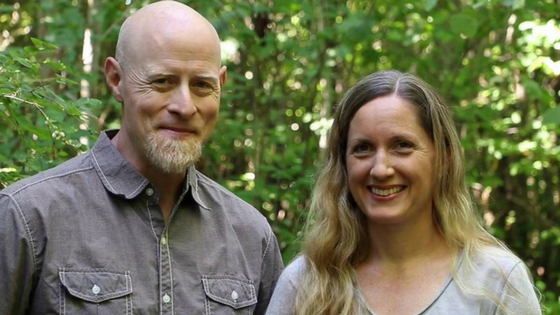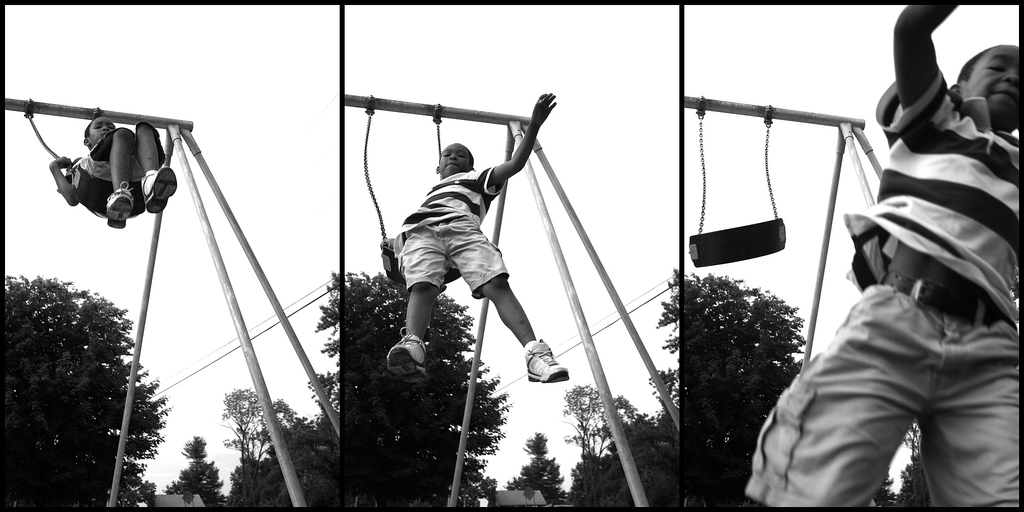Recently we got an email from a parent who asked….
How do I respond with empathy when my child doesn’t do what I asked unless I get mad, answers me rudely by saying, “Fine!”, or is so angry that he puts his fists up to my face?
As a compassionate parent, there are 3 key things that you can do in these situations with children.
I talk about them in this video AND I talk about HOW to do it.
After you watch this video write in the comments what questions you have about how to respond with empathy and create win-win situations with your child.









Thanks for the video :) lately I’ve started feeling like my two and a half year old doesn’t listen to a lot of things I tell her not to do. Unfortunately I end up having to threaten, saying things like if you do this again we will have to go home or on the other side bribing her with things she loves in order to have her abide (such as strawberries when we get home if you will sit in the stroller) . Of course, I’m aware that neither are ideal parenting but I don’t want to upset her either. I’ve started thinking that maybe I should be more firm and comfort her if she gets upset. Brushing her teeth is a current struggle and I’m concerned for her teeth, should I forcibly brush her teeth then comfort her? I hope my question isn’t off topic!
It’s hard for me to give good advice in comments, but I’ll try. First, what you describe with your two year old, sounds like she is right on track developmentally–Yay!! Second, I would try to empathize with her unmet need in these situations. Is her unmet need to play, connect, move her body, have autonomy, etc? If you understand WHY she is acting that way, then you’ll be better informed to come up with a “win-win”. E.g. “Oh, I see you want to play, lets play a game while you sit in the stroller…”
Great video!
…love this approach. Like you mentioned in one of your comments below, this is a long term investment way of communicating with your kid. Our kid is 2 1/2 and we have been having great many successes using the empathy approach. Yes it takes time, but you gain time in the long run. Most of the time it helps just to simply talk through why you need something to happen and that you understand their needs as well. Then they feel respected and part of the family. It’s an illusion to think that you have “power” over your kids or that they just “obey”. The more you think that way, the more messed up the conflict resolution and family dynamic becomes.
I agree, Patrick! Well said!
Thank you so much! ! My learning has given me this:
“Inner peace begins the moment you choose not to allow another person or event to control your emotions. ”
Remembering this (when I can) helps me tremendously to parent in accordance with my peace and not depending on my child’s behavior!
I aim to stay in control of me as my first priority. How can I expect them to practice controlling themselves if my example is so hyprocritical? I have to remember this in order to control my yelling. If I gain control of my kids by losing control of myself than the battle is won but the war is lost because I have just taught them that the results are more important than the process. This means that the daily battles will continue because they are not doing it for themselves they are doing it to shut me up or because I have finally cornered them into it with a lingering of guilt or shame. Either way someone’s ego is always damaged if it’s a battle of wills. Alternatively, if I show them the process in a calm and centered way then eventually they can achieve this independently and I see responsibility and confidence blooming! This logic supersedes any concerns of disobedience or “giving in”. I want to create children who respect themselves and learn to take action without my input. Respect is earned. If I lose control and yell then all bets are off. I may get my way but we have to backtrack with me apologizing and I chalk that up to a missed opportunity. We only have so many opportunities before habits settle into routine. Healthy routines are very important for successful children growing into adulthood.
It’s hard when we are rushed but perhaps there is one or 2 days of the week where you could practice leaving the house on time where instead of the results being your focus it’s the process and interactions that you cherish and slowly try to work those happy memories into the rushed days, bringing smiles and encouragement to “try like we do it so well on sundays”, for example.
Or if a meltdown is happening and I can see that the emotions they are releasing are beyond any logic and I need them the pick up the shoes they just threw across the room because my ego wants to make it clear that they can’t do that, then instead of the blame/shame game I use to play with my kids I will be the example. I walk away silently (to their complete astonishment and wonder), I breathe for a minute, wait until I am ready to pull this off and I return a minute later saying it’s my turn to be you and your turn to be me. (Perfect empathy game!) Now that I am you, I am going to pick up my shoes and come say sorry to you ” my mommy” because I know that was not okay. Then I do everything exactly how I want them to do it. Quickly pack my backpack, collect my coat and shoes and if there is time I will try to put on “my” shoes. They will be beyond giggles now and I will say this doesn’t work right , maybe you should be you and I will be mom again. My oldest especially loves the you be me and I be you game. That’s the quickest way to get things moving that have to be done when your in the middle of a war of the wills and don’t want to just “accept” disobediance. But it’s important to end it with silliness for the emotional release. We play this game all the time, even when things are flowing and it keeps it fun for the hard times.
Thank you, Jessa! I love the idea of the “you be me and I be you” game. We did something similar in our house recently and it was so funny! Our youngest (13 yo) acted out how we have her turn in her screens at the end of the day. It was hilarious!
I love that! Thank you for the examples and ideas!! I’m always feeling ‘stuck’ when my son is completely refusing to do what I asked and I want to work w him but also not come off like the disobedience or total lack of cooperation is okay. Thank you!
I’m glad you got some fresh ideas, Anna!
What if you respond with empathy but your kiddo responds with anger or throwing things because you are the closest and easiest target for expressing the mad feelings? And on a separate note, what if seems that your child’s need is something you don’t really want to encourage. For example they feel they always need to be first or to have the biggest/best piece of something and that is leading to their big feelings.
You’ll want to make sure that you keep your body safe. Say, “I’m not willing for you to throw things at me.” and then protect yourself… move your body, or theirs, or the thing that they are throwing.
For the second question, parents are often concerned that if we acknowledge a child’s feelings that it will make the feeling bigger. Actually the opposite is true, acknowledging feelings makes feelings get smaller. If a child is upset because he wasn’t first, you can say, “It’s so disappointing to not be the first one to the car. You really like being fast and strong. And it didn’t work out this time.” As long as you validate the feelings, and don’t solve the problem for him (don’t give him the biggest/best thing just because he’s sad), then his feelings will go away over time. Empathy doesn’t always work immediately to create a happy kid, but it does work over time. And having empathy for feelings doesn’t encourage his behavior (wanting to be first, have the biggest). Empathy communicates to your child that he is understood, see and loved by you!
If one responds with empathy and still doesn’t get their shoes on – what then?
Great question, Tammy! There are a few different ways to handle it… First make sure you’re giving empathy for the thing that the child is “actually” upset about. Why is your child upset about his shoes? Do their shoes hurt and that’s why he doesn’t want to put them on? Or does he not want to put shoes on because he then he’ll have to leave home and he doesn’t want to leave home? Etc.
Sometimes after a child gets empathy for their upset, they really feel heard, and they might naturally, jump up and put their shoes on. “Oh, you are having so much fun playing and now it’s time to leave the house and you don’t want to get your shoes on because you’re not done with playing. That makes sense.”
If that doesn’t happen, you can ask, “How are we going to solve this? You don’t want to get shoes on and leave the house, and I need to get groceries so we can eat dinner? What ideas do you have?” And engage in some problem solving. Maybe you offer some of your ideas too.
It’s great that you are teaching her so much about her feelings! Tough to know exactly what to do. I might consider making it a game… “I wonder if I close my eyes if the play dough will magically go back on the table?” or acting like the play dough was too heavy to put back by myself, to see if she would help. I might also try leaving it on the ground to see if she puts it on the table later. Or I could see that maybe she’s too hungry or tired or sad to put it away, and I’d say, “Seems like you are too tired. I’m going to clean up today, even though I know you can do this by yourself.”
Sometimes it’s understandably hard for kids to stick to their plans. So in those moments, as a parent, you have a choice… maybe it’s a time that you really can’t let him ride around another time (because dinner is burning in the oven inside!), maybe it’s a time when you can let him ride around, maybe he can do something active inside (that still meets his need for movement), or maybe he can do more biking later (after you make sure dinner is ok). It’s a judgement call that depends on the situation, his needs and your needs. It’s okay for him to express himself by stomping and yelling and it’s okay you see that, in fact, you had more time than you previously thought.
You’re right. It’s very difficult to be the parent of a child who is treating you in a way that you don’t like. I would guess that your son is not trying to give you a hard time, he’s having a hard time. He’s trying, probably unsuccessfully, to meet his own needs. If you show him empathy, help him meet his needs more successfully, then you are role modeling for him how he can treat others (and you!) with more empathy.
Rachel, empathy is a great place to start. And if we start from there then it’s easier to figure out what to do and say.
You’re right, Jan, not everything is a negotiation. And certainly talking about a plan for getting out the door is a lot easier than talking about things in the “heat of the moment”. Each family is different. In my work with children, I’ve seen that being a little flexible helps the kids be flexible in return, and ends up saving time in the short and long term.
Sorry but this is way too long a process for a simple request. The family has to get out the door each day without a long negotiation. Set a timer; we must get shoes on by X, ask them what will help them remeber the time? Leave the clock in front of them and at Y time the TV gets shut off. Simple. If I speed I get a ticket, if I don’t pay my bills I have no heat. Life it not always about a negotiation ! It’s not helping our children when we let them think everything is open for discussion.
I like the approach offered in the video. In my experience with my 4 and 6-year olds I have found that many times the response I receive to my requests depends on the way that I have asked. I think they are experts at detecting my emotions and attitudes behind everything I say. If I am relaxed about going out and not in any hurry they are most likely to cooperate and do as expected. If there is no time and I am tense, they become less cooperative and in retrospect I realise that I have started to address the requests in the form of orders. I think no one would be happy to receive orders at work, so no wonder kids hate it too. It implies they are inferior and have no say.
I agree, Diana! Kids are very tuned in to our emotional state!
This is one of the hardest things I have ever had to do in my life, respond with empathy. I simple have not been able to master it YET. I keep telling myself every day will be different but just this morning when I asked my 2nd grader to put his shoes on, it is time to leave for school and he gave me this awful attitude, said something rude, slammed the garage door, I walked right and did my same old same old – you do not speak that way… blah blah, be respectful, blah blah! I have been listening to the books, reading the books, watching the videos, taking notes, reading my notes. I need to be hypnotized, brainwashed! There should be a weekend bootcamp for this, ha ha. Reprogramming in just 2 days, I would sign up!
Angela, I think that responding with empathy is a skill that I will be working on for the rest of my life. Baby steps. It’s about progress, not perfection.
I like the suggestion. I am realising more and more that a parent must be the calm introspective adult in every situation, and stop assuming that the child has no mind of their own.
Catherine, I like what you’ve said here. In my experience when I treat kids with respect (because they have a mind of their own), they show respect back to me.
Wow, you better start this discussion way in advance of when you intend to get out the door as this could take forever. I’m all for the empathy and feeling part but at some point life is what it is and getting to work, and school, on time is the priority. Same thing for the dinner example. Are you going to negotiate while the dinner is cooling on the table?
I think that certain things are non negotiateable in order to teach that life has limits and rules that must be followed and not everything is a negotiation. A boss is not going to negotiate about doing what is asked and being to work on time. Let’s negotiate about things that truly are a choice.
Colleen, great points. Not everything in life is a negotiable. And it’s certainly easier to set expectations beforehand rather than in the “heat of the moment”. Part of the opportunity of parenting is deciding which things are truly non-negotiable and which actually have some wiggle room.
Hi! It happened to me yesterday, when I picked my 5 year-old boy up from school.
I understood he was mad, stressed, sad after the whole day with people he (still) doesn’t like, so he was responding very rude. To be honest, I felt I didn’t have the tools to help him come out from that feelings.
So this morning, getting ready to go to school, was really hard, because he didn’t want to do anything and his “need” was that he wants to stay home.
Any recommendations?
Big hug,
Cristina
Cristina, I would guess that his need might be to be understood and supported. You can say, “I understand that you haven’t made friends yet at school and I’m guessing you feel sad and frustrated about that. So you don’t want to go to school. Is that right?” Then ask, “What ideas do you have to make friends?” And share your ideas. Be his partner to solve the problem, maybe involve the teacher too. Hope that helps!
Thank you so much Cecilia!
You are welcome, Cristina!
I often find that asking the child their ideas for a solution helps them to see that it is the circumstances that define their options rather than them seeing me as the bad guy limiting their options.
Jo, that’s a great point!
I like the simplicity of working on a problem or a conflict with an example that many parents can relate to. I also like the suggestion for involving the child in finding a win-win solution. What we need to do is to apply this way of solving a problem on a conmsistent basis. Thanks.
JP, glad you could relate. Yes, consistency is key!
Very nice example and thank you for the video. In most of those cases a tv show(or something else that interesting) is involved I have the feeling that a child won’t have the desire to stop watching, in order to hear your “negotiation” plan or to find a solution that will fit both of you. He has to stop watching and start discussing with you. Isn’t that enough to make him mad?
Olga, that’s a valid point. I would probably ask that a child press pause on their show before talking to them and that alone could cause a child to be upset. Better yet, I could have this conversation with him before he starts watching so that I wouldn’t have to interrupt his show.